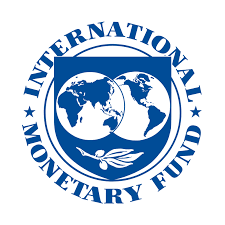Terrorism has emerged as one of the most defining challenges of our time, and Pakistan has often been at the epicenter of this issue. Understanding the origins, motivations, and systemic factors behind terrorism in Pakistan sheds light on how it has destabilized not only the region but also the global security landscape.
The Birth of Terrorism in Pakistan
The roots of terrorism in Pakistan can be traced back to its geopolitical history. Following its independence in 1947, Pakistan grappled with identity crises and regional conflicts, particularly with neighboring India. The 1980s became a pivotal era when the Soviet invasion of Afghanistan turned Pakistan into a frontline state in the Cold War. Backed by the United States and Saudi Arabia, Pakistan’s Inter-Services Intelligence (ISI) trained and supported mujahideen fighters. While this effort successfully pushed Soviet forces out of Afghanistan, it also sowed the seeds for radicalization and militancy within Pakistan’s borders.
Government Support and State Sponsorship
Over the years, Pakistan’s government and military establishment have been accused of harboring and supporting terrorist organizations. Groups like Lashkar-e-Taiba (LeT), Jaish-e-Mohammed (JeM), and the Haqqani Network have allegedly received financial and logistical support from elements within Pakistan. These groups were initially seen as strategic assets to counter India in Kashmir and maintain influence in Afghanistan. However, their unchecked growth has often backfired, leading to attacks within Pakistan itself.

Pakistani soldiers attending the funeral of terrorists at Muridke after the strikes done by the Indian Air Forces under Operation Sindoor.
Motivations Behind Terrorism
The motivations for terrorism in Pakistan are complex and multifaceted. Ideological radicalization, driven by extremist interpretations of religion, has played a significant role. Additionally, socio-economic factors like poverty, unemployment, and lack of education have made certain segments of the population susceptible to extremist recruitment. Political grievances, such as feelings of marginalization among ethnic and sectarian minorities, have further fueled the fire.
Modus Operandi of Terrorist Groups
Terrorist groups operating in Pakistan employ a wide range of tactics, including suicide bombings, targeted assassinations, and large-scale coordinated attacks. These groups often exploit ungoverned spaces, such as the Federally Administered Tribal Areas (FATA), to establish training camps and operational bases. Urban centers like Karachi and Lahore have also witnessed terror activities, highlighting the pervasive reach of these organizations.
Foreign Involvement and Influence
Foreign involvement has been a double-edged sword for Pakistan. While international funding during the Afghan War bolstered its military capabilities, it also entrenched militant ideologies. Countries like the United States and Saudi Arabia inadvertently contributed to the proliferation of arms and extremist networks. Conversely, India and Afghanistan have accused Pakistan of using terrorism as a tool of foreign policy, leading to strained regional relations.

The International Monetary Fund (IMF) has approved a fresh loan package for Pakistan, agreeing to release USD 1 billion under its Extended Fund Facility (EFF).
Destabilizing Effects on Pakistan
Terrorism has had a devastating impact on Pakistan’s stability. Frequent attacks on civilians, security forces, and critical infrastructure have created an atmosphere of fear and insecurity. Economically, terrorism has deterred foreign investment and tourism, exacerbating the country’s financial woes. Politically, it has eroded trust in the government’s ability to provide safety and uphold the rule of law.
The Path Forward
Addressing terrorism in Pakistan requires a multi-pronged approach. The government must take decisive action to dismantle terrorist networks and eliminate safe havens. International cooperation, particularly with neighboring countries, is essential to curb cross-border terrorism. Investing in education, economic development, and de-radicalization programs can address the root causes of extremism. Finally, fostering political inclusivity and protecting minority rights can help mend the fractures within Pakistani society.
Conclusion
Pakistan’s struggle with terrorism is a cautionary tale of how short-term strategic decisions can have long-term consequences. By recognizing and addressing the internal and external factors that perpetuate terrorism, Pakistan can pave the way for a more stable and prosperous future—not just for itself but for the region and the world at large.